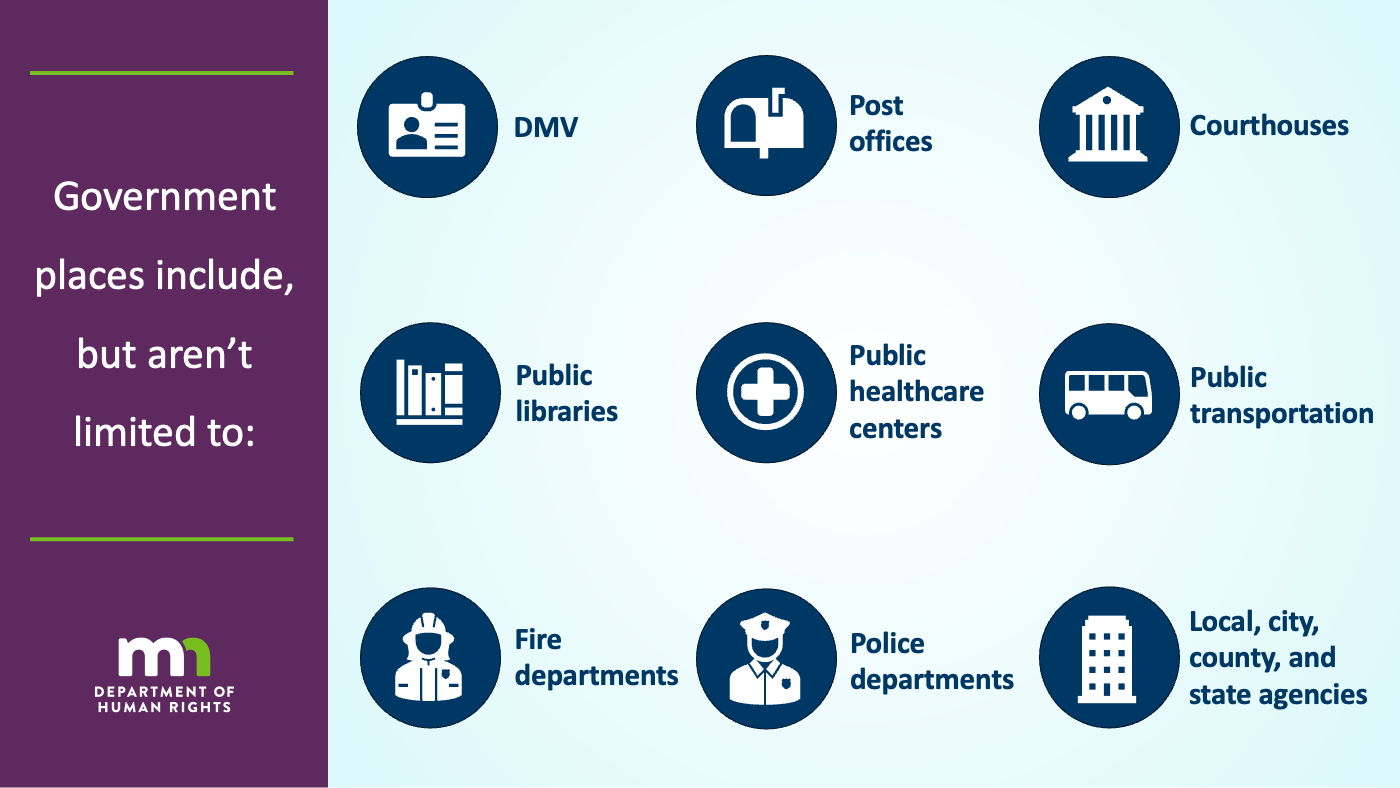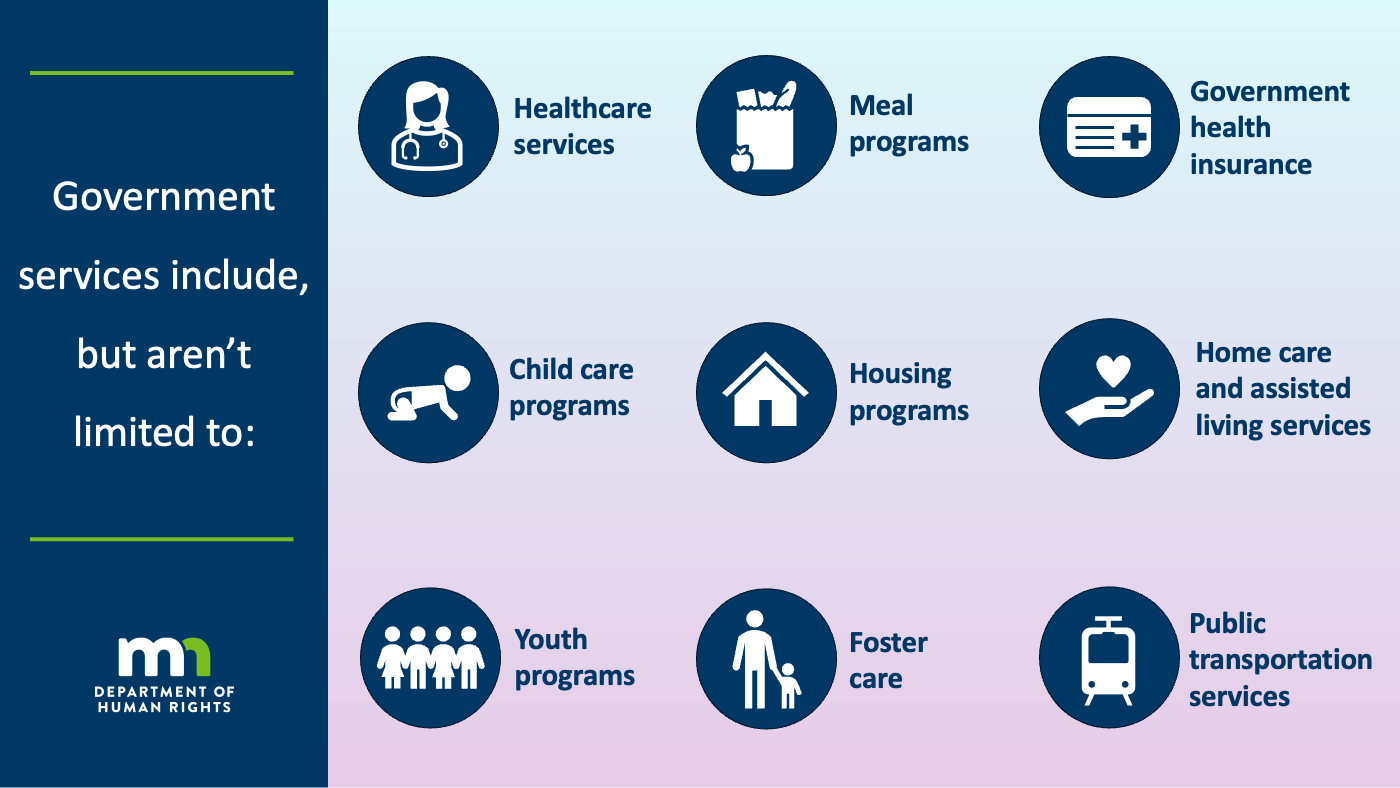
Discrimination in Government Places and Services
Under the Minnesota Human Rights Act, government places (also referred to as public services) cannot deny you access to their services, buildings, or otherwise discriminate against you because of: your race, disability, sex, religion, national origin, sexual orientation, gender identity, or other identities under the law.
If you believe a government place or service discriminated against you, complete this form 💻.
What’s covered?


Examples
- Race discrimination: A police department uses force against and stops, searches, and arrests Black people at higher rates than white individuals in similar circumstances.
- Disability discrimination: A courthouse denies a person with a disability from going into the building because of their service animal.
- National origin discrimination: A public hospital run by the government denied a patient who only speaks Hmong from booking an appointment because of their national origin. The hospital employee denied them translation services and told them to “Go back to your country.”
- Sex discrimination: A public library believes that only men should participate in a continuing education class focused on woodworking and does not allow women to participate because of their sex.
Accessibility resources
State law requires state agencies to adhere to federal standards for accessible documents and websites. Minnesota IT Services has helpful information on meeting those standards. Cities and counties may also have their own accessibility policies for their government documents and websites.
The Council on Disability also has several resources to help guide government places and services in following the law for accessibility.
